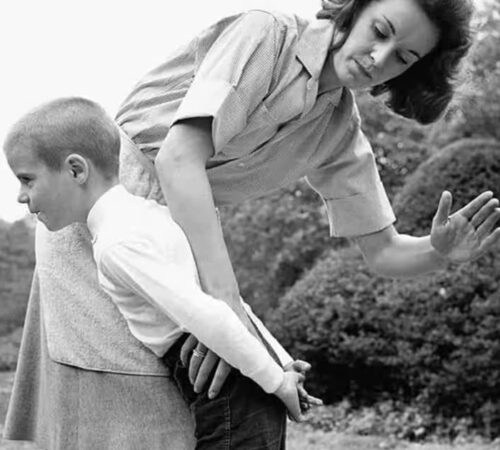Parenting: Natural Consequences are the Best Discipline
Spanking isn’t the only discipline
Discipline
Nothing beats natural consequences
by Gregory A. Barrett, M.D.
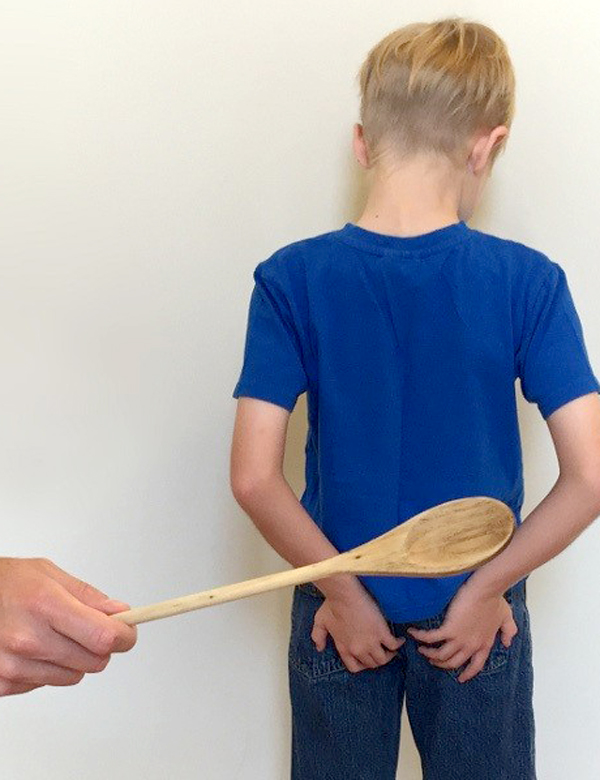
Whenever the subject of discipline comes up in the office, as it does on a regular basis, parents commonly request advice regarding how to respond when their child misbehaves and which techniques are most effective. Not to dismiss the importance of “how,” because it is certainly worth asking, but that is only one of a series of questions that need to be addressed. Let’s take a look at them.
WHO?
Obviously, it’s your kid. Now, there will be those occasions where due to your marvelous insights, vast knowledge, and superior understanding of parenting techniques you may feel compelled to intercede with another parents’ child, but let me warn you in advance that this is a most excellent way to get punched in the nose. And appropriately so! Tread lightly there, my friend.
That old saw about “he who casts the first stone” rings true as the odds are overwhelming there will be a time just around the corner when your own son or daughter may not exactly be the perfect little angel, so show some respect and courtesy to your fellow parents. I have always maintained that I have the easiest job in the world because there are over forty million self-anointed experts in my field of pediatrics more than ready to offer their unsolicited advice at the drop of a hat. When it comes to the subject of discipline try not to be one of them. This isn’t easy for any of us, and if you can effectively handle this monumental task with your own brood you have accomplished plenty.
WHY?
The immediate reason is so he or she will stop breaking furniture, biting your forearm, or writing on the wall with magic marker, but the bigger issue at stake is making sure your child learns and understands the concept of boundaries; so, that by the time they are adults they will be able to take their place as responsible, law-abiding members of society.

At least this should be a common objective to us as parents. (And if it isn’t we’re all going to be in a whole lot of trouble.) Installing a proper system of discipline is critical because the end is so vitally important. Mistakes made here magnify themselves years down the line in all kinds of unpleasant ways.
WHEN?
In my opinion this is the single most important question to address by far. It is so critical that by contrast deciding upon the precise manner of how to discipline becomes rather secondary. Good judgment is the key. You need to develop the ability to determine what requires a response and what does not, knowing when to react and when to just let something pass without comment.
It is impossible to put the hammer down on each and every single minor infraction, and if you try not only will your child begin to tune you out but the environment of your home will become toxic and unpleasant. If you – and when I say you I’m using it in the plural, both parents must be on the same page – can narrow your focus to the following three indications I believe you will stay relatively on target.
Dangerous Behavior
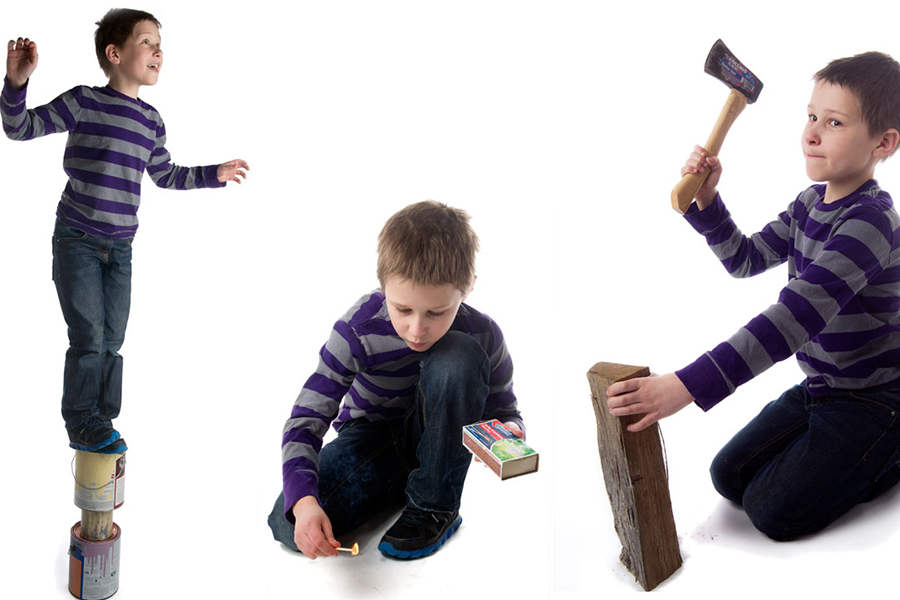
1. WHEN he or she is endangering their own safety. A child is categorically not allowed to stroll out in front of a speeding vehicle. They don’t get to play with knives. Your toddler may not jump off the roof. Come to think of it he or she probably shouldn’t have been allowed to climb up there in the first place, but you get the picture. Not only is it your responsibility to safeguard your children but a consequence must follow which will further discourage such risky activities in the future.
Fighting

2. WHEN your child is interfering with the health or dignity of another. This concept encompasses hitting little brother over the head with a rattle, willfully breaking and destroying a cherished antique, not allowing parents to eat their dinner in peace, etc. There are thousands of other examples of these infractions, and they constitute the overwhelmingly most frequent indications for discipline on a daily basis. Some broadness of interpretation is required here as the definitions will differ from one family to the next (see “Priorities”) but that is okay. No family member should be allowed to disrupt another person’s living space, body, or treasured objects.
Juvenile Delinquent
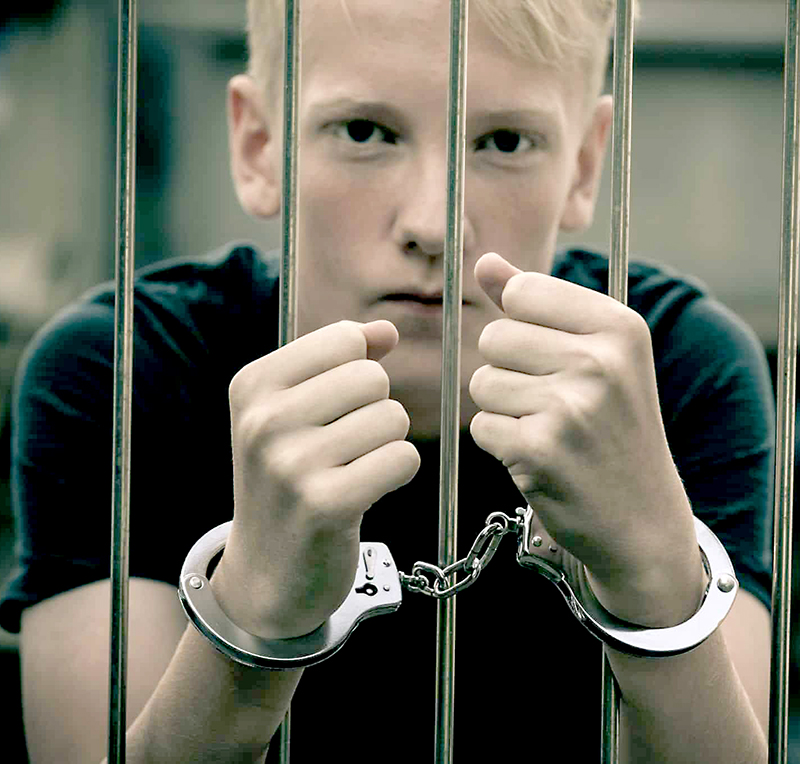
3. WHEN your son or daughter has broken the law. Generally speaking, of course, these offenses occur more often in the teen years. The legal repercussions in and of themselves are generally inadequate; parents need to pile on additional consequences. Respect for the rules of society must be taught. There is a time to go to bat for your kids and a time to stand back and make them pay the price for their actions, and this would obviously be a place where you should do the latter. (And then pile on….)
Temper Tantrum
Noticeable by its omission is the temper tantrum. This is not an oversight because in reality the garden variety tantrum in and of itself is essentially harmless and requires no action on the part of the parent. As long as damage to person or property is not occurring one should simply walk away and leave the melodramatic toddler to their own devices. More specifically the rule for how to respond to a tantrum can be summarized as follows:
Any child in the second year of life who has never made a display of temper must be in some stage of a coma. All toddlers throw tantrums (granted, some more than others, but they all do to some degree). Personally I found these outbursts of emotion unintentionally hilarious. The intensity, the theatricality, the peeking out of the corner of their eyes to make sure you’re still watching – such a hoot!

Not nearly so entertaining, of course, is what I refer to as the public tantrum, that humiliating display of temper which occurs in Aisle 11 of your local grocery store. Moms and dads are generally mortified when this happens largely due to their perception that everyone witnessing the display is regarding them critically.
This is a completely mistaken interpretation of those looks they are receiving. What fellow parents are actually trying to express is extreme sympathy for their plight as they flash back to when their own was in a grocery cart going ballistic. Anyone who isn’t feeling pity for you at stressful times like this and trying to offer their wordless support must by definition be childless. There could be no other possible explanation for being so clueless because I guarantee all the rest of us have been right where you are and understand perfectly well exactly how you’re feeling.
So, how does one handle the public tantrum? I’m sorry, but if it’s really intolerable all you can do is just get the heck out of there as rapidly as possible. And if these behaviors occur with regularity, then you will just have to make special arrangements to time trips to the store unaccompanied by your troublemaker. But this will pass, and a few years down the road when you are forced to deal with a whiny, complaining, filibustering adolescent at the mall you’ll reflect back to the simple tantrum and think to yourself in retrospect maybe it wasn’t all that bad.
Discipline: HOW?

Let’s say a fifteen-month-old toddles over to his mother and smacks her right in the face. In this common scenario parents often choose between two extremes, and both are patently wrong responses.
First is to allow the child to continue hitting to his little heart’s content while the mom sits rigidly still saying nothing other than muttering vague, apologetic protests under her breath. Come on, he has to be shown this is wrong or she will bear direct responsibility when he hauls off and pops the kid next door.
Or Second, one hundred and eighty degrees in the opposite direction, lies the equally ineffectual alternative of the parent stopping what she is doing, holding him on her lap, patiently and lovingly explaining that even though she loves him it hurts Mommy when he pounds her with his little fists, tells him it wasn’t a good thing that he did but he is a good boy, gives him a warm hug and a kiss, and sends him on his merry way.
Well, guess what? Thirty minutes later he’s beating on her again. What happened? Does she simply need to repeat her talk? Of course not! He understood perfectly well what just happened, he was taught that slugging Mom would be awarded with the undivided attention of his favorite person, and what on earth (other than ice cream) could be better than that? Via lap time and a hug, she has just encouraged the virtually guaranteed perpetuation of the hitting.
Discipline: Spanking
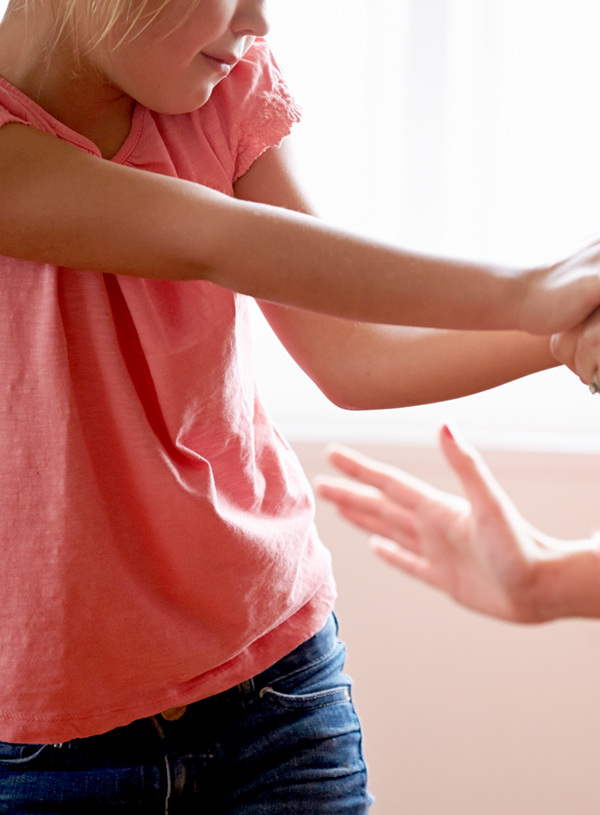
No discussion of this topic would be complete without mentioning the time-honored tradition of spanking. Now the American Academy of Pediatrics has officially expressed horror regarding this “barbaric” practice, but I must admit I am not one of those pediatricians who has great moralistic qualms about an occasional swat on the bottom with an open hand.
As a matter of fact, I have seen many families with a specific type of child use it with care and discretion and for them it does seem to have some utility. My major issue with spanking is that in general it is so colossally ineffective. There are a couple of reasons for this. One is the not-so-subtle message the parent is conveying of legitimizing violence. We are the principal role models for our children and if they witness us using physical force, they will mimic it.
And secondly is the curious phenomenon that, in younger children, all behaviors which are rewarded either positively OR negatively are more likely to repeat themselves. This is why the polar opposites of spanking and offering loving explanations are both equally doomed to failure. In either case you are unintentionally rewarding a behavior you don’t wish to continue with a predictable and inevitable result.
Discipline: Just Say No
The best response to the aforementioned scenario of the toddler hitting his mother is simply to say, “No, don’t hit,” in three words or less followed by a quick and immediate removal from the scene. Although it may not seem very creative the mainstay of discipline, particularly for the younger child, remains the classic time-out.

It is critical to emphasize the importance of stating in a firm, authoritative parental voice “NO” as the mischief maker is being whisked away to suffer his consequence. The objective here is to condition the child to the point where stating the word alone is sufficient to freeze them in their tracks.
Discipline: by Time Out
Most mothers and fathers utilize the timeout technique to some degree but don’t seem to have a very clear understanding of why it is effective and exactly what one is trying to accomplish. First of all, it brings an abrupt halt to the abhorred activity. Which is good – don’t waste any time, stop the misbehavior right this very instant.
The time-out also serves to separate the parent from their child. Kids can be incredibly frustrating and sometimes they can push you right to the boiling point, so much so that getting away from them can be in the best interest of both parties.
If you are a mom or dad, you already understand fully well the meaning of that last sentence, and if you aren’t I assure you one day you will. And finally, this is a classic example of discipline by extinction which is the ideal. If the reward is the parent’s attention, then the punishment is its withdrawal.
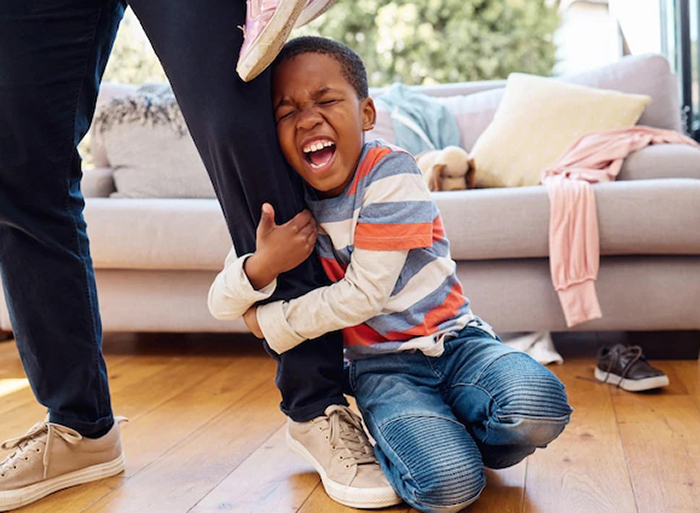
Children not uncommonly will manifest a couple of disparate reactions to the time-out parents seem to find disturbing. One is that they will cry. Hey, don’t let this bother you, that should be music to your ears warming the very cockles of a parent’s heart! I hear this complaint all the time and I consider it amazing. I mean, the whole idea in the first place was for the intervention be unpleasant, wasn’t it?
The other response which annoys parents and leads to second-guessing themselves occurs when the child doesn’t seem to mind the time-out sentence. In fact, sometimes he or she may even laugh about it. The mother or father will take this as maddening evidence that they need to try something different, but that is not the case at all. Even though the transgressor doesn’t seem to be bothered by the consequence the time-out remains correct and appropriate.
I equate this to a lawbreaker who is found guilty of an offense and is sentenced to serve some specified time in jail. Now even though he may not particularly mind prison – he knows a lot of the guys there, many of them are buddies of his, the facility has a nice weight room, and the food is really not all that bad – nonetheless this is where he belongs. He did the crime and now he must do the time, and the same philosophy applies to your transgressing toddler.

Let’s continue this judicial system metaphor for a moment longer. So, what if, after release from time-out, your child immediately carries out the original misdeed all over again? Well, just as with the courts, as a repeat offender off he goes again but this time for a longer, sterner sentence.
And just how long should the incarceration last? The standard answer is one minute per year of age, but I have always felt that seemed a bit arbitrary. I think that’s just something someone said sometime, and it somehow caught on and endured. My personal recommendation is long enough. How long is long enough? Oh, that’s simple, just go with your gut. Remember, as a parent you are the judge and the jury, you determine guilty or not guilty, and you determine the duration of the sentence. Your verdict is absolute law, and I trust you to make the right decision.
Parents are often reluctant to begin using time-out until their child is quite a bit older rationalizing that their little one is not developmentally advanced enough (read “too stupid”) to understand the subtle message they are attempting to deliver. Don’t be fooled by lack of speech; a child’s understanding ability is miles ahead of their verbal ability. Even a ten-month-old human being is already way smarter than any rat in a maze.
There is no such thing as being too young to begin basic behavior modification. In addition, don’t feel your child will ever grow too old to apply these principles, albeit with some adjustments. Reward the good, ignore the bad, and discipline decisively for breaches of the three WHEN rules are powerful tools for influencing behavior at all ages.

An alternative to time-out is called, among other names, the Therapeutic Hold. In this scenario when a child has crossed the line their parent holds him or her securely in their lap until they have settled. When I try to envision this in my mind – gripping the squirming, sweaty, slippery, out-of-control toddler attempting to maintain my hold on them as I squeeze harder and harder and harder – ehh, I really don’t want to go there. I personally much prefer the time-out. It just seems cleaner and safer to me and accomplishes the desired outcome more efficiently. But for what it’s worth there you go.
Discipline: WHERE?
Many mothers and fathers resist the idea of utilizing the crib as the place to put their child for the time-out under the theory that it will make them fearful of bedtime and create an additional problem. Frankly I have never in all my years in practice found this to be true but there certainly are other viable options.
The location for the time-out, however, does need to have the qualities of being in a separate room from the parent and providing no possibility of escape. A good example of a time-out alternative to the crib which would be effective would be a playpen in another room. A bad example of a time-out which most surely would be ineffective would be a chair in the same room as the parent that the child could leave at will. The difference should be obvious. Out of sight, out of mind is critical. If these criteria are not met the time-out will not work.
The responsibility to discipline your offspring is an ongoing, never-ending process. Unacceptable behavior must continue to have consequences. One of the neatest parts about the three indications for WHEN is that they apply to kids of all ages. It’s only the size of the infractions and the style and manner of the response that changes. This brings up the following key principle for developing a proper approach to misbehavior in the older child:
Discipline: Privileges
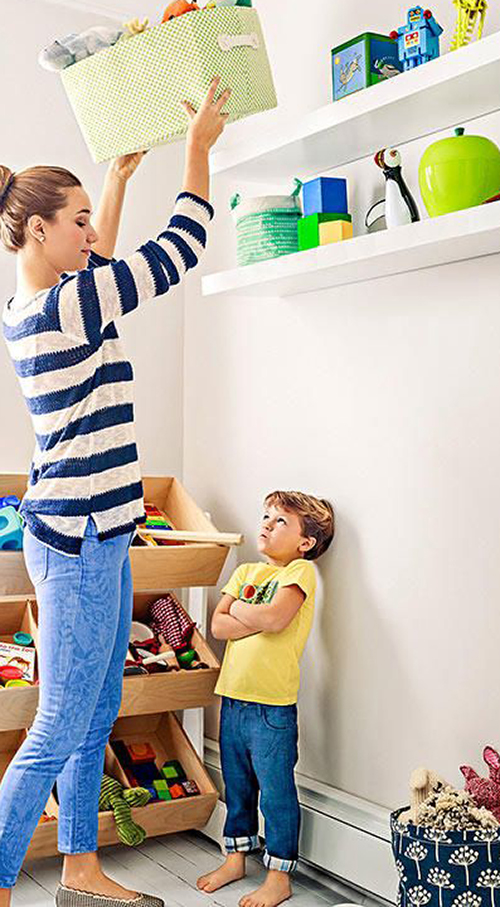
Now they may feel they have rights, but the sad fact is that actually they don’t. What they do have is a set of benefits bestowed upon them through the goodness and largesse of their parents.
Having a cell phone, unlimited access to the family computer, being able to go to movies with friends, keys to the family car, and having an allowance are not birth rights. These aren’t entitlement programs but rather luxuries granted dependent upon the child meeting the standards for behavior set by their parents and susceptible to being withdrawn at any time if those expectations are not met.
I would caution mothers and fathers, however, to show some discretion about how much you remove and how quickly. Not infrequently I have seen parents respond to some transgression by immediately grounding their son or daughter for six months and taking away their car, their phone, their computer, their television, their friends, and essentially their life.
Now all that’s fine and good but what is the next step, what are they going to remove the next time he or she misbehaves? Instead take a deep breath, step away, and then, after you’ve cooled off a bit (really important) sit down and begin to discuss what happened, get the facts, figure out an appropriate, measured response, and establish right from the beginning of the penalty what needs to happen to have the privilege renewed.
Discipline: Rules
I have never been much of an advocate of having a lot of rules, particularly for the older child. I realize that seems a strange thing to say on the surface, but I believe more generalized expectations of good behavior should be emphasized rather than a black and white set of regulations.
The legendary college basketball coach Bobby Knight has an unparalleled reputation for toughness in the world of sports, and thus I found it fascinating when I heard him state in an interview one time that he honestly didn’t have many rules for his players. When asked to elaborate he explained that the problem he had with rules is that if a kid breaks one of them then he is stuck with having to enforce it.
This may be a difficult concept to grasp but there is a really important application of what he is saying here for parents. Having rules takes away leeway in both directions. If a suboptimal or disappointing behavior occurs that has not previously been defined as a violation it allows for the “you never said I couldn’t do that” defense.
On the other hand, there could be extenuating circumstances in a given situation which might be mitigating, but if you’re stuck with a pre-determined set of strictly defined rules and punishments, you’d better be darned prepared to carry them out each and every time or they aren’t worth the paper on which they’re written. Coach is right.
Discipline: Teens
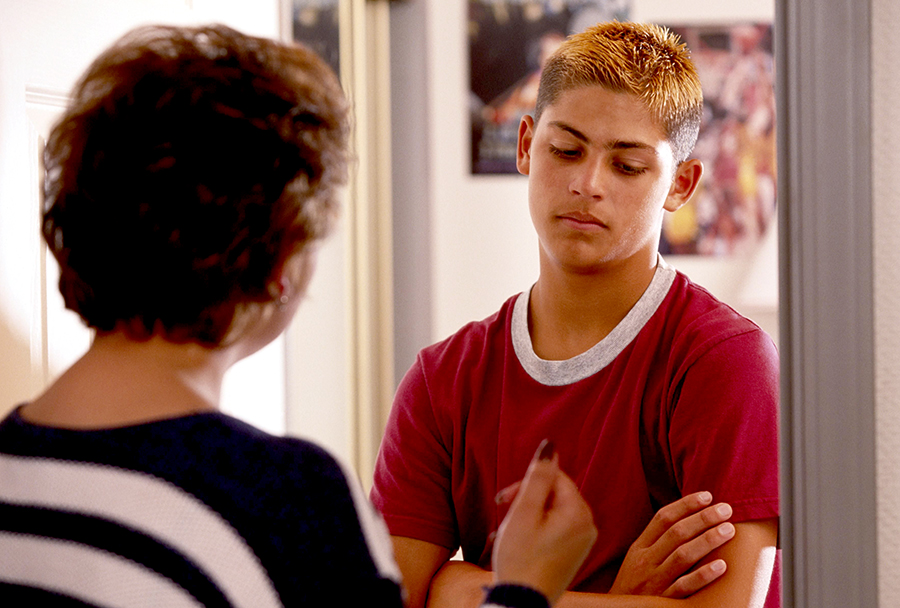
The consequence of misbehavior should never be depriving the child of a beneficial activity. I see this error in parental judgment made frequently and it is a big one serving only to compound the misery without purpose. Examples: “Your grades are below the standards we have set for you, so we are not going to allow you to play baseball this spring”; “You came home a half hour after curfew last night, Sarah, so no Sunday evening church group for you for the next six weeks”; “Jerry, you messed up, and as a result we’re not going to let you help your grandfather paint his house this weekend.”
Parents do this all the time. Granted, losing the privilege to participate in a team sport, attend church with friends, or spend time with their beloved grandpa is a source of punishment which will impact your son or daughter, but isn’t it possible the benefits of such activities far outweigh whatever is to be gained by prohibiting them?
I’m not saying there shouldn’t be consequences for infractions but always strive to find something which won’t ultimately impact overall in such a negative way. The goal is not to have a sullen, bored, grumpy kid hanging around with time on his or her hands and nothing better to do than discovering some less healthy pursuits to fill the void.
Don’t ever abandon the time-out. With some modifications even with older children it remains an effective and integral part of the program. Meanwhile, keep your eyes and ears open and on the lookout for leverage. Leverage, to the uninitiated, means finding something that really stings.
When our daughter was sixteen, she committed some mildly egregious error in conduct and her mom and I sat down with Rachel to let her know of our decision to take the car keys away from her for the upcoming weekend.
“I can’t use my car on Friday? Or Saturday night either?” she shrieked. “Are you kidding? Please tell me you’re not serious! Oh…my…%%%!!! (Expletives deleted), people, why don’t you just go ahead and shoot me?!?”
With that she marched up the stairs and the slamming of her bedroom door literally rattled the foundations of our house.
Huh?… Hmmm… Ah-hah!!!
Discipline: NATURAL CONSEQUENCES
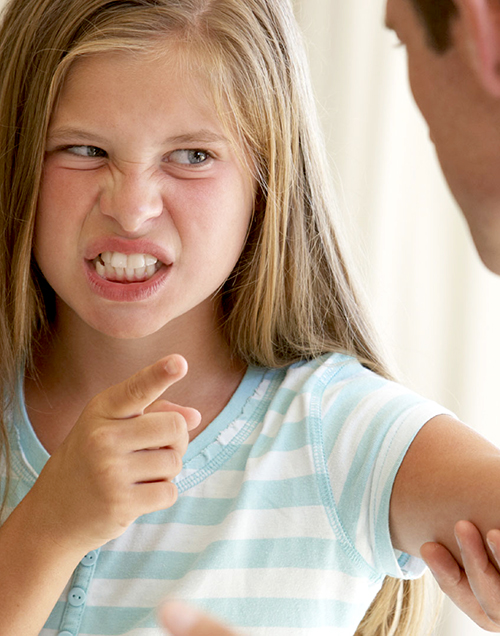
My wife and I came to the same sudden realization that she had inadvertently revealed to us a most excellent form of leverage. In retrospect it might have been a huge mistake on Rachel’s part to respond so strongly because this enabled us to utilize the mere threat of depriving her of the use of her car to good advantage for the next two years. When it comes to dealing with teenagers, leverage is an absolutely wonderful tool. Find it and use it.
No matter what the age of the child the most ideal discipline is always the simplest, that being natural consequences. The beauty of this is both that it requires no active intervention on your part and it has the best potential to change future behavior.
You say you don’t want to eat your dinner, dear? Fine, then you can get down and play but remember, nothing to eat until breakfast, and it’s going to be a long, long time until tomorrow morning and you will get hungry. But go ahead.
Your little boy is too busy to come inside and use the bathroom and as a result he peed in his pants? Well, accidents do happen, but you don’t have to be in any big rush to change him. Seriously.
Your daughter doesn’t want to wear her jacket when it’s chilly outside ignoring your recommendation? Okay, honey, but you will be cold. It’s not a terrible idea, by the way, to turn up the air conditioner in your car on the way to school; so you can assist her in truly understanding the full value of dressing appropriately.
Your child refuses to pick up his toys? Alright, don’t argue, go ahead and pick them up yourself. But remember, when you pick them up, they are going to stay put away for a long, long time.
Get the drift? If they make a bad decision allow them to fully experience the results.
A legendary poker player was once being badgered by a young hot shot to tell him the single most important secret of his success. Finally, he turned to him and said, “Not making mistakes.”
“Not making mistakes?”
“That’s right.”
“Okay. So, teach me, how do I learn how not to make mistakes?” the wannabe pro persisted.
“Experience,” he responded.
“Experience,” groaned the youth in frustration. “Everyone always says that, but I never understand. What do you mean? What exactly is experience, anyway?”
“Making mistakes,” replied the master.
Effective discipline

Effective discipline begins with understanding the clear-cut rules for WHEN. Don’t sweat the inconsequential stuff but respond quickly and decisively when your child crosses the line. Be aware of when and how you’re going to intervene and then be consistent. Try not to become discouraged if you aren’t getting the results you desire.
This doesn’t mean you’re doing anything wrong; modifying behavior takes time. If your approach is fundamentally sound stay with the program. At all ages, but particularly as your son or daughter gets older, find leverage and use it. Although your children may feel otherwise the truth is that they have no rights, only privileges. And privileges can be withdrawn at any time.
Remember, allowing a child to suffer the consequences of bad choices is a remarkably effective learning experience. Always be on the lookout for these opportunities and take full advantage of them whenever and wherever possible.
Natural consequences – they’re the best.
☤

